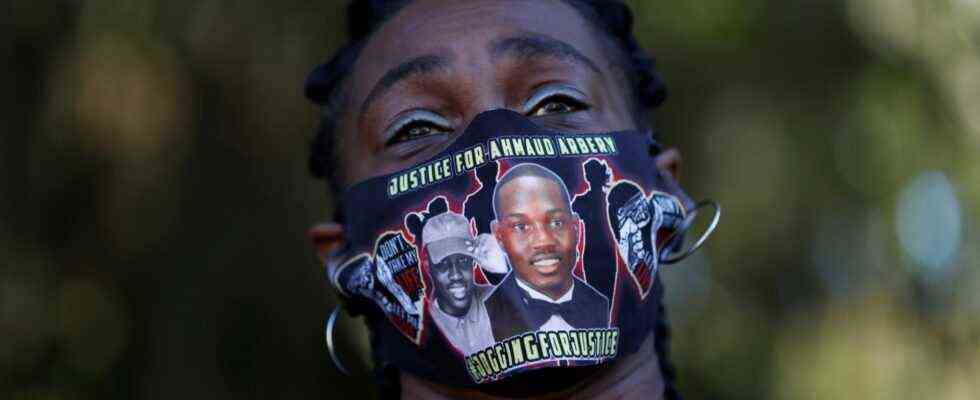Status: October 18, 2021 8:34 a.m.
In May 2020, three men hunted and shot dead Ahmaud Arbery while jogging in the United States. They supposedly thought he was a burglar – but there are doubts about that. The trial against the accused begins today.
It is February 23, 2020, a sunny afternoon in the small town of Brunswick, southern Georgia, when a call comes in at the police emergency center. You can hear an angry local resident, Greg McMichael. “A black man is running down the street,” shouts the 64-year-old. McMichael says he doesn’t know exactly where they are, then the recording ends abruptly.
The gray-haired, stocky man called from his pickup. Next to him is his son Travis. The two of them followed the running man, a jogger: It’s Ahmaud Arbery – on his usual lap.
What happens then is shown on the cell phone video of a neighbor who followed them in his car. Arbery seems to want to jog past the pickup. A shot sounds. You can see Arbery wrestling with a man, the caller’s son, who is holding a shotgun at him. A second shot is fired, a third. Arbery collapses.
Police don’t care about injured Arbery
The police appear shortly afterwards. But she doesn’t care about the seriously injured Arbery, but about the McMichaels, as the images from a helmet camera of the emergency services show. Arbery is still alive at this point, he is breathing and moving. But it takes several minutes for someone to take care of him. Arbery dies.
All of this will only become known in detail more than two months after the crime, after the said videos became public and sparked nationwide protests. Only now are the McMichaels arrested and their neighbor William Bryan, who filmed the crime. You are charged with murder.
Why did it take so long? John Perry, a black pastor in Brunswick, has a suspicion, as he tells NPR radio: “I call them privileged relationships. Some people get into positions of power and there they build relationships that protect them in a way like it did at is not the case with other people. ” Perry alludes to Gregory McMichael being a police officer and working for the prosecutor. The prosecutor is now accused of obstructing investigations against her ex-employee.
Lawyer advocates self-defense
McMichaels’ attorney, Robert Rubin, sees no guilt with his clients. He tells the broadcaster NPR that it was a matter of self-defense. “There’s a man in the neighborhood who doesn’t belong there,” says Rubin. “Not because he’s black – but because he trespasses.” The McMichaels claim to have seen Arbery break into a construction site on his jogging tour. They wanted to arrest him, they say, until the police arrive – just as a law that has since been abolished allowed citizens to do so. When Arbery struggled, they should have defended themselves.
Kevin Gough, the defender of the neighbor who filmed the crime, brings another argument: The accusation that there is an institutional racism in the police and the legal system of the United States is growing louder among the population. Arbery’s name joins a long list of black people killed, most recently Trayvon Martin, Walter Scott, Breonna Taylor and George Floyd. According to Gough, his client would serve as a scapegoat.
The prosecution is likely to rely on the fact that the McMichaels are said to have made racist statements in the past, according to witness statements. Or that the Confederate flag can be seen on their pickup trucks, a symbol of slavery and racism. And she will probably cite the fact that Arbery was a simple jogger and was unarmed.
Beginning of the process: fatal hunt for black joggers?
Franziska Hoppen, ARD Washington, October 18, 2021 7:13 am

